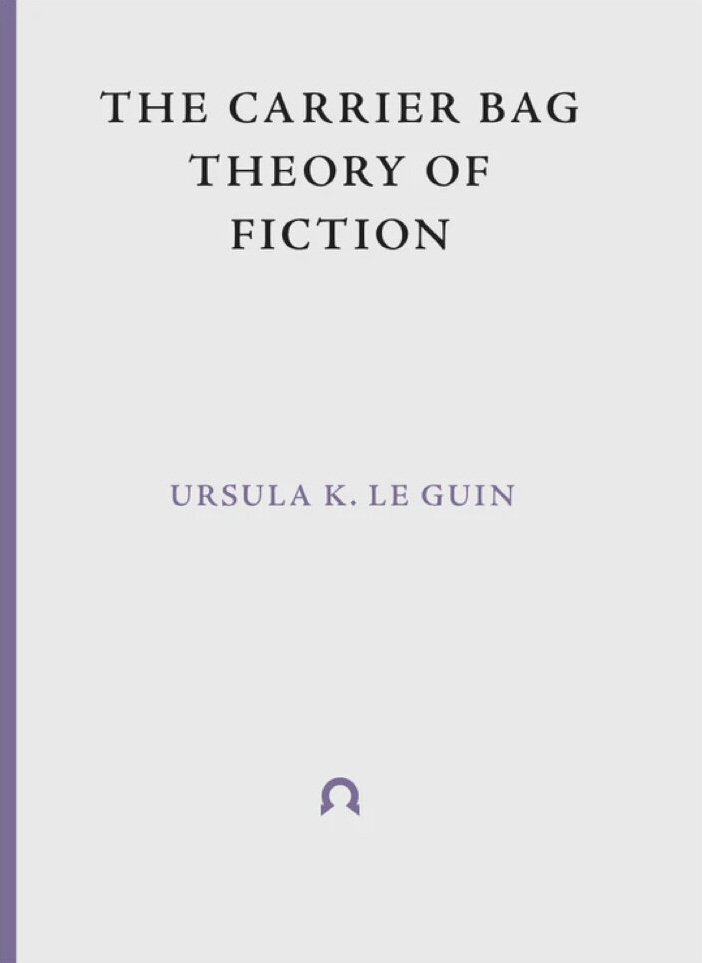
In The Carrier Bag Theory of Fiction, visionary author Ursula K. Le Guin retells the story of human origin by redefining technology as a cultural carrier bag rather than a weapon of domination. Hacking the linear, progressive mode of the Techno-Heroic, the Carrier Bag Theory of human evolution proposes: 'before the tool that forces energy outward, we made the tool that brings energy home.' Prior to the preeminence of sticks, swords and the Hero's long, hard, killing tools, our ancestors' greatest invention was the container: the basket of wild oats, the medicine bundle, the net made of your own hair, the home, the shrine, the place that contains whatever is sacred. The recipient, the holder, the story. The bag of stars. This influential essay opens a portal to terra ignota: unknown lands where the possibilities of human experience and knowledge can be discovered anew. With a new introduction by Donna Haraway, the eminent cyberfeminist, author of the revolutionary A Cyborg Manifesto and most recently, Staying with the Trouble and Manifestly Haraway. With images by Lee Bul, a leading South Korean feminist artist who had a retrospective at London's Hayward Gallery in 2018.
Author

Ursula K. Le Guin published twenty-two novels, eleven volumes of short stories, four collections of essays, twelve books for children, six volumes of poetry and four of translation, and has received many awards: Hugo, Nebula, National Book Award, PEN-Malamud, etc. Her recent publications include the novel Lavinia, an essay collection, Cheek by Jowl, and The Wild Girls. She lived in Portland, Oregon. She was known for her treatment of gender (The Left Hand of Darkness, The Matter of Seggri), political systems (The Telling, The Dispossessed) and difference/otherness in any other form. Her interest in non-Western philosophies was reflected in works such as "Solitude" and The Telling but even more interesting are her imagined societies, often mixing traits extracted from her profound knowledge of anthropology acquired from growing up with her father, the famous anthropologist, Alfred Kroeber. The Hainish Cycle reflects the anthropologist's experience of immersing themselves in new strange cultures since most of their main characters and narrators (Le Guin favoured the first-person narration) are envoys from a humanitarian organization, the Ekumen, sent to investigate or ally themselves with the people of a different world and learn their ways.